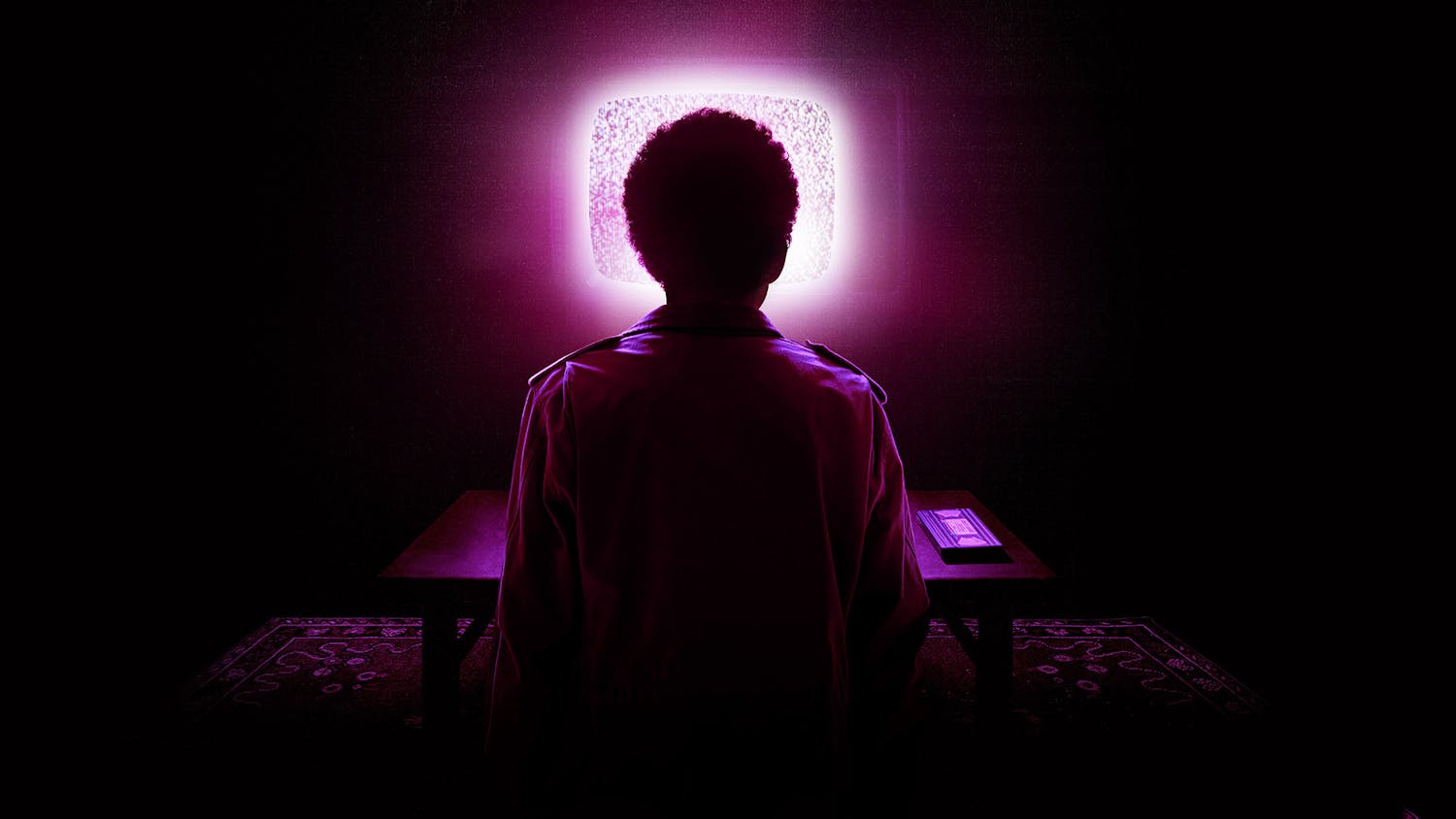Murder, fame and the unsettling relationship between the two were the subjects of this year’s J-term musical, Chicago, which sold out for every show. The classic American work, with music by John Kander and lyrics by Fred Ebb, ran from Jan. 28 to Feb. 1 at the Town Hall Theater (THT) in Middlebury. Premiering three weeks after rehearsals began, the production was directed by THT Executive Director Doug Anderson with musical direction by Middlebury Affiliate Artist Carol Christensen and band direction by Bear Irwin.
Chicago tells the alluring and despicable tale of two murderesses caught up in the glamor and clamor of the 1920’s vaudeville entertainment age. Roxie Hart and Velma Kelly, portrayed by Erin Craig ’19 and Liana Barron ’18 respectively, are jailed for murdering their lovers – but this does not last long. With the help of their charming and clever lawyer, Billy Flynn, played by Kahari Blue ’19, the two manipulate the power of the press in order to reshape their story into a “not guilty” verdict – all while gaining fame and publicity.
Perhaps more appalling than the plot is the fact that it is based on true events. In 1924, Beulah Annan and Belva Gaertner killed their lovers in cold blood. The press pounced on the stories and fascinated the public for months, chiefly because the perpetrators of such heinous crimes were women. Much like in the musical, the Chicago newspapers twisted, ignored and fabricated the truth almost as much as the women did themselves until they were transformed from murderesses into acquitted victims. The story was so compelling that it was eventually turned into a play, a book, a musical and a 2002 film.
Chicago is a story whose significance continues to be relevant to this day. As Doug Anderson, who acted as director, producer and set designer as well as being the Executive Director of the THT, stated in the program, “Today there seems to be no lack of people who ignore facts while rewriting history, cooking up narratives that play on sentimentality and deep-seated prejudice in a grab for power and profit.”
Even with the stomach-churning backstory, the show is difficult to not enjoy. The glowing red CHICAGO sign shone down on no fewer than fifteen faced-paced music and dance numbers featuring murderesses, matrons, judges, juries, executioners, reporters, husbands and a “sob-sister” who was not all she appeared to be. Perhaps it is because of this mixture of a thought-provoking plot and fantastic music that Chicago has become America’s longest-running musical. The J-term version, in all its glitz, glamor and “razzle dazzle,” continued this tradition of pure entertainment and tart wit.
For the eleventh year, the J-term musical brought together the College’s Department of Theatre and the local performing arts center. Production called for collaboration between the College, community members, students and faculty in order to achieve such a monumental effort in such little time.
“We know we have a little less than three weeks in January to get all the blocking, choreography and rehearsals with the pit band done, which is why we start vocal rehearsals in the fall,” Christensen, musical director and creator of the annual winter term musical, explained. “The cast is expected to have all the music memorized by the first day of class in January so they can rehearse the blocking and choreography ‘off book.’ In many ways it mirrors what it is like to put on a production in the professional world, where one is expected to know his or her part going in, and put the show together in just a few weeks.”
Alicia Evancho ’12 acted as choreographer of the J-term musical for the third time, having previously worked on Hairspray in 2012 and Ragtime in 2015. She was joined in her choreography efforts by two cast members, Connor Pisano ’18, who also portrayed Amos Hart, and Caitlin Duffy ’15.5, who played Liz in the Cook County Jail. Pisano and Duffy each choreographed a few scenes, which Duffy described as “a learning experience.”
Duffy reflected on her role in the production during her final semester at Middlebury.
“I hope to continue acting after I graduate, but I don’t plan on doing many musicals, so getting to do the J-term musical has been a gift,” she said. “It’s also been a great opportunity to be involved in town a little bit more. I will miss it.”
Apart from the six-hour-a-day rehearsals during the week, cast members were expected to practice and collaborate outside of class in order to accomplish the feat of memorizing every line, step and note.
“It’s fast-paced and intense,” ensemble member Paige Guarino ’18.5 said. “But there’s a great sense of camaraderie and of coming together to make something great. The collaborative spirit of the J-term musical is just phenomenal.”
The musical and the real-life events that inspired it illuminate both the power of the press and the weaknesses of our legal system. Chicago also offers a stark commentary on the hunger and gullibility of the American public. Our eagerness for more violence, more scandal, more hangings and more stories is as apparent as it will ever be in this musical. We must ask ourselves, then, who is guilty of the graver crime: Velma and Roxie for their lovers’ murders, or the people who follow their stories with a blind passion for violence and sin.
As Mama Morton, played by Victoria Isquith ’19, says, “In this town, murder is a form of entertainment.”
Chicago Shows Despicable Power of Press
Comments



